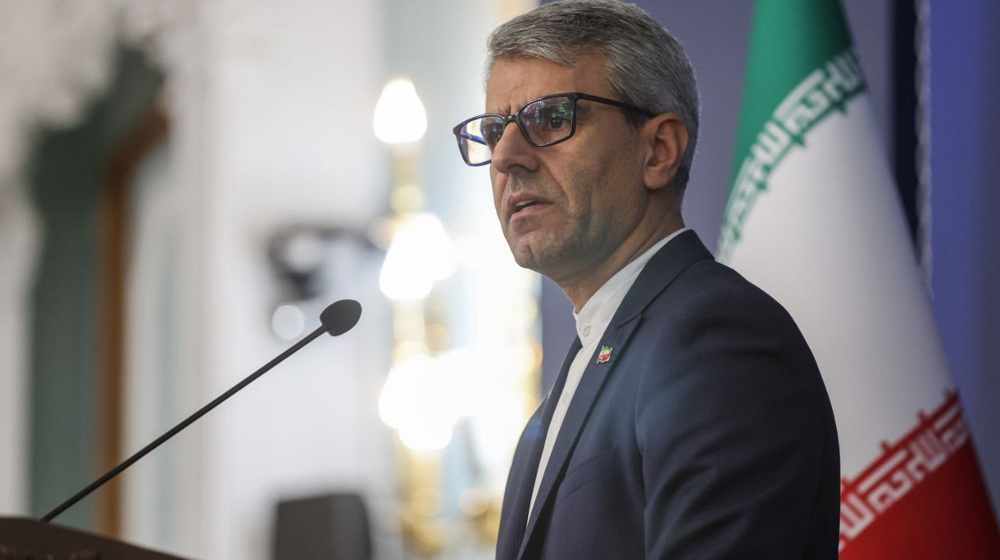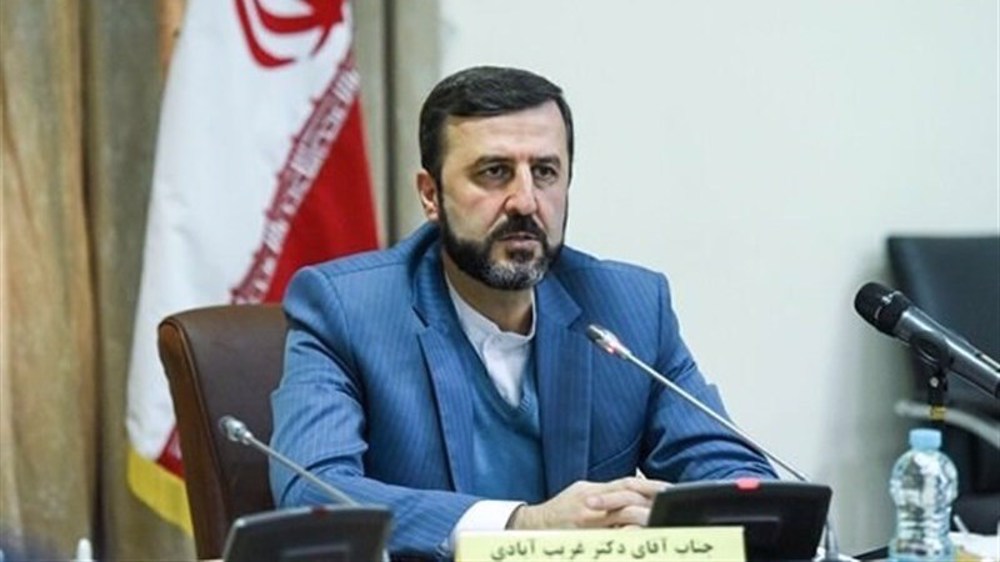IAEA can now close Iran ‘past issues’ nuclear dossier: Najafi
Following the latest report by the International Atomic Energy Agency (IAEA), Iran says the UN watchdog can now forever close the case concerning the Islamic Republic’s past and present nuclear activities.
Iranian Ambassador to the IAEA Reza Najafi made the comments on Thursday after the agency said the activities set out in the roadmap signed between Tehran and the IAEA on July 14 had been completed during the period running until 15 October 2015.
The agency’s statement added that IAEA Director General Yukiya Amano will provide “the final assessment on the resolution of all past and present outstanding issues” to the watchdog’s Board of Governors by December 15.
Following the IAEA report, Najafi said the Islamic Republic has lived up to its commitments “with good will,” stressing that “the agency is now in a position where it can close [Iran’s nuclear] dossier once and for all by issuing its final assessment.”

Najafi further said the resolution of the “past and present issues” regarding Iran’s nuclear program would pave the way for the implementation of the Joint Comprehensive Plan of Action (JCPOA) agreed between Iran and the P5+1 group of countries.
On July 14, Iran and the IAEA signed a roadmap regarding the Islamic Republic’s nuclear work in the Austrian capital city of Vienna.
As part of the roadmap, the IAEA is required to finish its investigations on Iran’s nuclear activities and submit a report to the agency’s Board of Governors by December 15. Under the agreement, Iran was also required to cooperate with the IAEA and answer the agency's questions about its nuclear program.
The agreement was reached on the same day Iran and the P5+1 – the United States, Russia, China, France, Britain and Germany – finalized the text of the JCPOA in Vienna. Under the JCPOA, limits will be put on Iran’s nuclear activities in exchange for, among other things, the removal of all economic and financial bans against the Islamic Republic.
JCPOA to be adopted Monday
Also on Thursday, Head of the Atomic Energy Organization of Iran (AEOI) Ali Akbar Salehi said JCPOA’s Adoption Day would very likely be next Monday, when both sides officially announce their approval of the agreement.
As soon as the JCPOA is adopted on Monday, the European Union will formally declare the removal of anti-Iran sanctions, said Salehi, adding that US President Barack Obama would also officially remove parts of the bans against the Islamic Republic and suspend some others.
Salehi, however, said the exact date for the agreement’s implementation will be set after the Islamic Republic takes certain steps regarding the Natanz and Fordow nuclear facilities as well as the Arak heavy water reactor, all in central Iran, as agreed under the JCPOA.
The measures will be taken based on a timetable within 45-60 days, added the senior Iranian official, saying the JCPOA is accordingly expected to take effect in the final days of 2015.
VIDEO | Press TV's news headlines
VIDEO | Syrians boycott electricity bills after 800% hike
VIDEO | Domestic breakthroughs place Iran In laser leadership
Trump threatens Iraq over ex-PM Maliki’s return
VIDEO | Tehran tax administration building destroyed in organized arson, explosion
National unity will block threats to Iran’s territorial integrity: Intelligence minister
VIDEO | Israel-US scheme for Gaza
VIDEO | Iraqi parliament delays vote to elect new president










 This makes it easy to access the Press TV website
This makes it easy to access the Press TV website